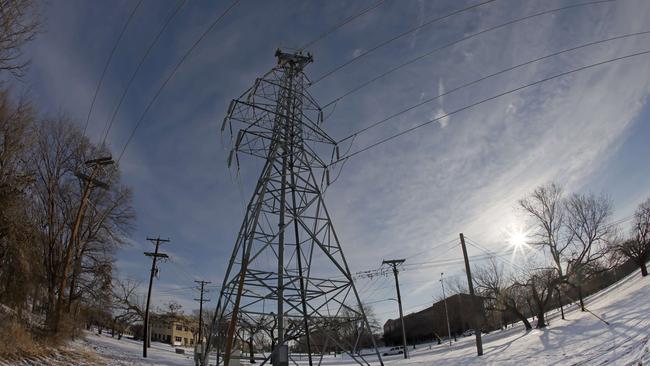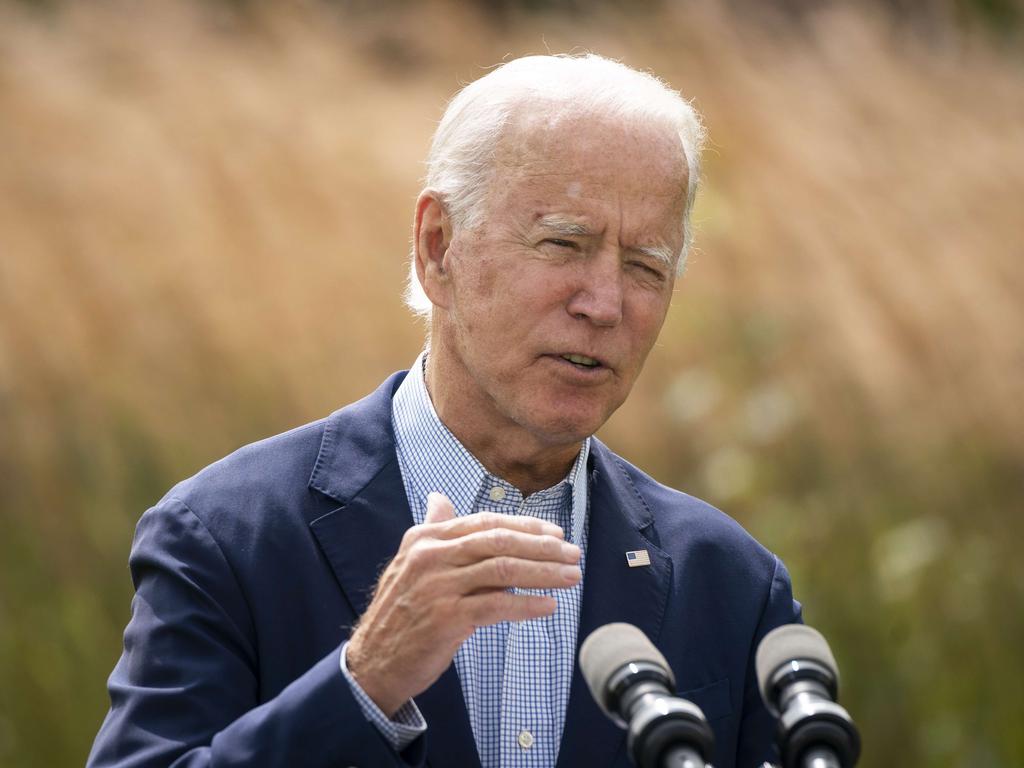Texas tragedy reveals three important reasons to take up the nuclear option
The climate and energy debate swirled into a tragic and deadly reality in Texas this week. This is what it looks like when renewables let you down.

This was the grim repercussion, primarily, of a bitter winter storm that prompted a surge in electricity demand and knocked out some of the state’s gas-fired electricity generation. But renewable energy let down the Lone Star State, too; Bloomberg reported that half of the state’s wind turbines were frozen into inaction, and Governor Greg Abbott said this accounted for at least 10 per cent of the energy shortfall.
This is another study in energy grid mismanagement, with emissions reduction policies playing their role. Texas is the only continental US state not connected to other electricity grids — it is totally reliant on its own energy mix — and it has changed that mix dramatically in recent years.
In dangerously cold weather, when electricity supplies are a lifeline to every house, it pays to consider the counterfactual. Wind energy has been deliberately and rapidly expanded in Texas in the past decade so that it makes up 23 per cent of all electricity supplies, displacing coal as the second largest source after gas.
During this week’s big freeze, it was gas-fired power and wind that suffered the most dramatic falls in generation. Coal ran closer to capacity. Clearly, if coal-fired generation still made up more than a quarter of the Texas electricity mix, the state would have fared better. This is just a fact — it is not an ideological point.
We know the obvious advantages of renewable energy — inexhaustibility and an absence of emissions — that help to make it popular. But we cannot pretend away what it does to security.
Proponents consistently ignore the inescapable achilles heel of wind and solar energy — lack of reliability. All electricity sources, from coal and nuclear to hydro and geothermal, can be interrupted but the frequent, unavoidable and unpredictable intermittence of wind and solar is the central dilemma of global energy policy. Batteries and pumped hydro are, thus far, merely expensive methods of partially offsetting that weakness. They fall a long way short of overcoming it.
With abundant gas and oil, Texas is the largest energy user, producer and exporter in the US; it generates almost twice as much electricity as the next biggest generator, Florida. This global energy powerhouse has closed coal-fired power stations in recent years as it has expanded wind generation.

The Lone Star state’s wind turbines generate 24,000 megawatts — four times Australia’s wind capacity — while natural gas delivers about half of its electricity and nuclear about 10 per cent. For all the factors at play in this week’s big freeze, there can be no denying that the replacement of dispatchable coal-fired power with wind reduced electricity reliability and undercut energy security. The only debate is about the extent,
Did some political warriors overplay the role of renewables? Of course. But did the rapid expansion of wind energy and consequent scaling back of coal-fired power weaken the Texas grid? Just as certain.
This should provide another case study and salient lesson for years to come about how, even with a diverse and resource-rich energy mix, the introduction of renewables can undermine system resilience. When lives and livelihoods are at stake, we ought not be too flippant about energy security.
Yet in our country the resource-rich state of NSW has an Energy Minister, Matt Kean, who preaches damnation against coal and promises net-zero carbon emissions by 2050; while in Western Australia the Opposition Leader, Zak Kirkuk, has pledged to shut down publicly owned coal generators within four years and hit net-zero emissions by 2030. Why? Like Texas, WA is a vast state, endowed with resources and with a grid that is not connected to other supplies. Any diminution of energy security could be disastrous, whereas the benefits from reduced emissions will be negligible. Even though Texas has a carbon footprint larger than Australia’s, the emissions it eliminates through its renewable push will not “save the planet”. Global emission are still rising.
President Joe Biden’s new climate tsar John Kerry admitted last month: “When almost 90 per cent of all of the planet’s global emissions come from outside of US borders, we (the US) could go to zero tomorrow and the problem isn’t solved.” With that in mind, imagine the futility of WA inflicting risks, costs and pain on its industries and citizens to reduce its footprint — the cost-benefit analysis would be lopsided.
Still, that is precisely the sort of analysis politicians continually avoid in this crucial policy area. They want to reduce emissions for emission’s sake and promote renewables for similar “feels”.
Activists and politicians who like to run slogans about “believing in the science” always avoid providing a scientific argument for how increasing costs and decreasing energy security without producing environmental benefits can be justified. The only science at play is political science.
And so, here we are, at the start of another political year, and climate and energy policy is re-emerging as a fissure in federal politics. Any minute now Bill Murray will step in a puddle. At least this year the nuclear debate is being rekindled by Coalition MPs, with some support within Labor ranks. Much of the world tries to ignore this topic, but it seems inevitable that the demand for reliable, emissions-free electricity will lead us back to nuclear.
Electricity demand has doubled globally in the past three decades and is expected to do so again by 2050. Only nuclear is sufficiently efficient, reliable and scalable to do this while reducing or curbing emissions and buttressing modern economies. Despite our rich endowment of coal and gas, there are three compelling reasons the Morrison government and our broader political class must embrace this opportunity. Reducing emissions is just the most conspicuous and politically saleable argument.
The second reason is to guarantee efficient and affordable energy security into the distant future — it must be a national economic and security imperative to arrest rather than exacerbate our declining energy security — by making use of the extensive uranium reserves we currently export. The fashionable forecasts suggest we are on a path to more electric cars and renewable energy — it is an unconvincing mix. If we are indeed about to see an electric car revolution, then reliable nuclear energy would underpin it and help cover our strategic fuel reserve shortfall.
Third, there is the increasingly compelling defence argument. A domestic nuclear industry will enable us to develop a sophisticated capability that could underpin our security by enabling us to buy and operate nuclear submarines.
We now face a very uncertain and potentially unstable region where submarine operations are crucial, especially in dealing with potential Chinese aggression, yet we are caught in a capability gap. Even our costly and delayed submarine replacement program involves the bizarre conversion of a French nuclear design into an inferior diesel-electric craft.
It is probably too late to change course on this procurement but, as Tony Abbott suggested in a 2017 post-prime ministerial speech, we ought to consider purchasing US nuclear submarines. Rather than service them in the US, it would be better, economically and strategically, to develop capability at home.
Given the security of the nation is at stake it is staggering that this proposition has not generated ongoing debate. Emissions-free, reliable electricity for major populations centres; self-reliance in a sophisticated technological industry; and enhanced security through improved military capability: there is no obvious downside except that this is just too politically difficult in an era of oppositionist outrage.





The climate and energy debate swirled into a tragic and deadly reality in Texas this week. Millions of people were stuck without electricity and families were killed when fires lit for warmth burned down houses, or they were poisoned by carbon monoxide when they ran cars in garages or generators indoors to stave off the cold.